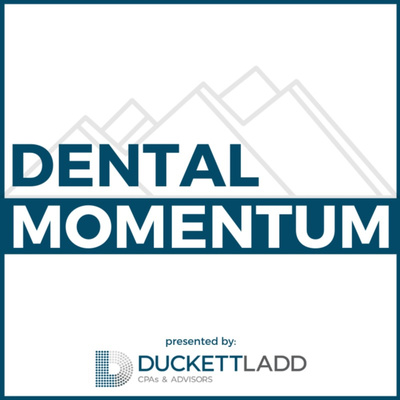Why Tax Planning is Essential When Selling Your Dental Practice
When planning the sale of dental practice tax planning, understanding the tax implications is crucial. By addressing tax considerations upfront, you can significantly impact your financial outcome for the better. Here’s what you need to know:
- Entity Structure: Different business structures like sole proprietorships, partnerships, LLCs, S Corporations, and C Corporations have distinct tax implications.
- Asset Allocation: Properly allocating the purchase price among different asset categories can reduce your tax burden.
- Goodwill Classification: Goodwill can be personal or practice-related. Categorizing it correctly affects tax liabilities.

Understanding the Tax Implications
When planning the sale of dental practice tax planning, understanding the tax implications is crucial. By addressing tax considerations upfront, you can significantly impact your financial outcome for the better. Here’s what you need to know:
Asset Sale vs. Stock Sale
One of the first decisions you’ll face is whether to structure the sale as an asset sale or a stock sale.
- Asset Sale: This involves selling individual assets of the practice, such as equipment, patient records, and goodwill. This structure is more common and often preferred by buyers because they can select specific assets to purchase and avoid potential liabilities. However, asset sales can result in a higher tax burden for the seller, as different assets are taxed at different rates.
- Stock Sale: In a stock sale, you sell your ownership interest in the practice entity. This option generally results in more favorable tax treatment for the seller, as the entire sale may qualify for long-term capital gains tax rates. However, buyers may be less interested due to the potential for inheriting liabilities.
Long-Term Capital Gains Tax Rates
If you’ve held assets in your practice for more than a year, the sale may qualify for long-term capital gains tax treatment. This is beneficial because long-term capital gains are taxed at lower rates compared to ordinary income. The tax rates for long-term capital gains in 2023 are 0%, 15%, and 20%, depending on your income bracket.
Ordinary Income Tax
Assets held for less than a year or certain types of assets (like inventory) are subject to ordinary income tax rates, which can be as high as 37%. This can significantly increase your tax liability, so it’s crucial to understand how different assets will be taxed.
Entity Structure
The entity structure of your dental practice also plays a significant role in the tax implications of the sale. Common structures include:
- Sole Proprietorship: Income is reported on your personal tax return, and you’re subject to self-employment taxes.
- Partnership: Income is passed through to partners and reported on their personal tax returns.
- LLC: Can be taxed as a sole proprietorship, partnership, or corporation, offering flexibility in tax treatment.
- S Corporation: Income is passed through to shareholders, avoiding double taxation but requiring reasonable compensation to owners.
- C Corporation: Subject to double taxation, where the corporation pays taxes on its income, and shareholders pay taxes on dividends.
Each structure has its own set of tax benefits and drawbacks, so consult with a tax professional to determine the best option for your situation.
Real Property
If your practice owns real property, such as the building where you operate, selling this real estate can have significant tax implications. For example, if you’ve taken depreciation on the property, you’ll need to recapture that depreciation upon sale, which could increase your taxable gain.
Goodwill
Goodwill is an intangible asset representing the value of your practice’s reputation, patient base, and brand recognition. When selling your dental practice, the portion of the sale price attributable to goodwill is subject to capital gains tax treatment. Proper valuation and allocation of goodwill are essential for determining the tax consequences of the sale and maximizing tax efficiency.
A seller will be exposed to more tax liabilities if they allocate the bulk of the purchase price to categories subject to ordinary income tax and vice versa.
By understanding these tax implications, you can better steer the complexities of selling your dental practice and optimize your financial outcomes.
Next, we’ll dig into Asset Allocation Strategies to help you minimize your tax liability and maximize your profits.
Asset Allocation Strategies
When selling your dental practice, how you allocate the purchase price among different asset categories can significantly impact your tax liability. Let’s break down the key points you need to know.
Allocation Categories
The IRS requires that the purchase price be divided among seven different asset classes:
- Class I: Cash and general deposit accounts.
- Class II: Actively traded personal property, such as stocks and bonds.
- Class III: Accounts receivable, mortgages, and credit card receivables.
- Class IV: Inventory or property held primarily for sale to customers.
- Class V: Tangible personal property, like equipment and furniture.
- Class VI: Intangible property, including patents and trademarks.
- Class VII: Goodwill and going concern value.
IRS Guidelines
The IRS mandates that both the seller and the buyer individually fill out Form 8594, Asset Acquisition Statement, detailing how the purchase price is allocated. This form must be attached to your income tax return for the year the sale occurs. Properly allocating the purchase price can help you reduce your tax burden.
Tangible vs. Intangible Assets
Tangible assets include physical items like dental equipment, furniture, and office supplies. These are typically subject to ordinary income tax rates, which can be as high as 37%.
Intangible assets include goodwill, patient lists, and trademarks. These are often subject to long-term capital gains tax rates, which are generally lower.
Depreciation Recapture
If you’ve been depreciating assets like dental equipment or real property, you need to be aware of depreciation recapture. This means you may have to pay taxes at ordinary income rates on the amount of depreciation you’ve claimed over the years. This can significantly increase your tax liability.
Favorable Tax Treatment
To minimize your tax liability, aim to allocate more of the purchase price to intangible assets like goodwill, which are subject to long-term capital gains tax rates. Here’s a quick comparison:
- Class IV (Inventory): Taxed at ordinary income tax rates (up to 37%).
- Class V (Real Property) and Class VI (Intangible Property): Typically subject to long-term capital gains tax rates (0%, 15%, or 20%).
For example, if you allocate a significant portion of the purchase price to goodwill (Class VII), you may benefit from the lower long-term capital gains tax rates.
By understanding and strategically managing your asset allocation, you can significantly reduce your tax liability and maximize your financial outcomes. Next, we’ll explore the differences between Asset Sale vs. Stock Sale to further optimize your tax planning strategies.
Sale of Dental Practice Tax Planning
When selling your dental practice, effective tax planning can save you a significant amount of money. Let’s explore the key areas you need to focus on.
Asset Sale vs. Stock Sale
One of the first decisions you’ll need to make is whether to structure the sale as an asset sale or a stock sale.
- Asset Sale: In an asset sale, you sell individual assets like equipment, patient records, and goodwill. This method is often preferred by buyers because they can pick and choose which assets to purchase and may get better tax benefits from depreciating these assets.
- Stock Sale: In a stock sale, you sell your ownership interest in the practice entity. This option is generally more favorable for sellers because it can result in more favorable tax treatment.
Tax Consequences: Asset sales often result in a mix of ordinary income and capital gains taxes, whereas stock sales are usually taxed at long-term capital gains rates, which are lower.
Buyer Preferences: Buyers often prefer asset sales for the tax benefits and reduced risk, but sellers should weigh the tax implications carefully.
Long-Term Capital Gains Tax Rates
When you sell your dental practice, you may benefit from long-term capital gains tax rates if you’ve held the assets for more than a year. These rates are generally lower than ordinary income tax rates.
- Federal Income Taxes: Long-term capital gains tax rates are 0%, 15%, or 20%, depending on your income bracket.
- State Income Taxes: Don’t forget state taxes; these can vary widely.
Tax Strategies
Minimizing Tax Liability: Here are some strategies to help you keep more of your hard-earned money:
- Installment Sale: Spread the income over several years to stay in a lower tax bracket.
- 1031 Exchange: Defer capital gains taxes by reinvesting the proceeds in a similar property.
- Deductions: Broker fees, legal fees, and advertising costs can be deducted to reduce taxable income.
- Timing of Sale: Plan the sale for a year when your income is lower to minimize tax impact.
Installment Sale
An installment sale allows you to receive the sale proceeds over several years. This can help you avoid bumping into a higher tax bracket in a single year.
1031 Exchange
A 1031 exchange lets you defer capital gains taxes if you reinvest the proceeds into a similar property. This strategy is particularly useful if your practice includes real estate.
Deductions
Don’t overlook potential deductions:
- Broker Fees: Deduct the cost of hiring a broker to help sell your practice.
- Legal Fees: Deduct legal expenses related to the sale.
- Advertising Costs: Deduct costs associated with marketing your practice.
Timing of Sale
Work closely with a tax professional to determine the best time to sell. By analyzing your financial situation and projecting your income, you can strategically plan the sale for a year when your tax liability is lower.
Entity Structure Considerations
When selling your dental practice, the entity structure—whether it’s a sole proprietorship, partnership, LLC, S corporation, or C corporation—plays a crucial role in determining your tax liability. Each structure has unique tax implications that can significantly impact your financial outcome.
Sole Proprietorship
If your dental practice is a sole proprietorship, the income from the sale will be taxed at your individual ordinary income or capital gains tax rates. Sole proprietorships are straightforward but offer limited tax planning flexibility.
Partnership
In a partnership, the sale proceeds are divided among the partners and taxed at each partner’s individual tax rate. This allows for some flexibility in tax planning, as each partner can manage their tax liability separately.
Limited Liability Company (LLC)
An LLC can be taxed as either a sole proprietorship (if single-member), partnership (if multi-member), or can elect to be taxed as an S corporation. This flexibility allows for strategic tax planning to minimize tax liability. Most buyers prefer LLCs for their ease of transfer and liability protection.
S Corporation
An S corporation offers pass-through taxation, meaning the income from the sale passes through to the individual shareholders and is taxed at their personal tax rates. This avoids the double taxation seen in C corporations. Many dental practices prefer this structure for its tax efficiency.
C Corporation
A C corporation is subject to double taxation—once at the corporate level and again at the individual level when dividends are distributed. This can significantly increase the overall tax burden. However, there are scenarios where a C corporation might still be beneficial, depending on your long-term business strategy.
Double Taxation vs. Pass-Through Taxation
- Double Taxation: Occurs in C corporations where the company pays corporate taxes on profits, and shareholders pay taxes again on dividends.
- Pass-Through Taxation: Seen in S corporations, partnerships, and LLCs, where profits are taxed only once at the individual level, avoiding the corporate tax layer.
Choosing the Right Entity Structure
Selecting the right entity structure can be complex but is vital for optimizing your tax outcomes. Here are some tips:
- Consult with a Tax Advisor: A specialized tax advisor can help you steer the complexities and choose the best structure for your situation.
- Consider Future Sales: If you plan to sell your practice in the future, an S corporation or LLC might offer more favorable tax treatment compared to a sole proprietorship or C corporation.
- Evaluate Liability Protection: While tax implications are crucial, don’t overlook liability protection. LLCs and corporations offer more protection than sole proprietorships and partnerships.
By understanding the tax implications of different entity structures, you can strategically plan the sale of your dental practice to minimize tax liability and maximize your financial benefits. Next, we’ll address some Frequently Asked Questions about Sale of Dental Practice Tax Planning to further clarify common concerns.
Frequently Asked Questions about Sale of Dental Practice Tax Planning
How to Sell a Dental Clinic?
Planning Process
Selling a dental clinic starts with a solid plan. Begin by evaluating your practice’s financial health and market position. Understand your goals and timeline, and consider consulting with a financial advisor or broker who specializes in dental practices.
Practice Valuation
Next, determine the value of your practice. This involves assessing assets like equipment, patient records, and goodwill. A professional valuation will give you a clear picture of what your practice is worth and help set a realistic asking price.
Broker Assistance
Hiring a broker can be invaluable. Brokers have the expertise to market your practice effectively, find potential buyers, and negotiate terms. They also help with the legal and financial paperwork, ensuring a smooth transaction.
Marketing
Effective marketing is crucial. Update your online presence, including your website and social media profiles. Consider local advertising and community involvement to attract buyers.
Letter of Intent
Once you find a potential buyer, they will typically present a Letter of Intent (LOI). This document outlines the proposed terms of the sale and signals the buyer’s serious interest. Review it carefully with your advisor.
Negotiations
Negotiations can be complex. Discuss the purchase price, payment terms, and asset allocation. Aim to allocate more of the purchase price to goodwill and patient records, as these are taxed at lower capital gains rates.
Asset Purchase Agreement
After agreeing on terms, both parties will sign an Asset Purchase Agreement. This legally binding document details the sale terms, including asset allocation, payment structure, and any contingencies.
Landlord Introduction
If your practice operates in a leased space, introduce the buyer to your landlord. This ensures a smooth transition and helps the buyer negotiate a new lease or assume the existing one.
Is Sale of Patient Records Capital Gain?
Yes, the sale of patient records is generally considered a capital gain. According to IRS guidelines, patient records and goodwill are intangible assets. They are taxed at long-term capital gains rates, which are lower than ordinary income tax rates. This can significantly reduce your tax liability compared to selling tangible assets like equipment or supplies.
What Multiple Do Dental Practices Sell For?
Revenue Multiples
Dental practices often sell for a multiple of their annual revenue. The typical range is 0.6 to 1.2 times the annual revenue. For example, a practice generating $1 million in revenue could sell for $600,000 to $1.2 million.
Net Income Multiples
Another common valuation method is based on net income. Practices may sell for 1.5 to 3 times their annual net income. This method considers profitability, offering a more accurate valuation.
EBIT and EBITDA
Some buyers use Earnings Before Interest and Taxes (EBIT) or Earnings Before Interest, Taxes, Depreciation, and Amortization (EBITDA) to value a practice. These metrics provide a clear picture of operational performance and cash flow, making them attractive to investors.
By understanding these valuation methods, you can better position your practice for a successful sale.
Next, we’ll dig deeper into the importance of professional advice and how Duckett Ladd can help you maximize profits and minimize tax liability during the sale of your dental practice.
Conclusion
Selling your dental practice is a significant milestone. The process involves complex tax considerations that can impact your financial future. This is where professional advice becomes invaluable.
Importance of Professional Advice
Navigating the sale of a dental practice requires expertise in both financial and tax planning. A qualified tax advisor can help you structure the sale to minimize tax liability and maximize your profits. They can guide you through asset allocation, ensuring you benefit from more favorable capital gains tax rates rather than higher ordinary income tax rates.
How Duckett Ladd Can Help
At Duckett Ladd, we specialize in helping dental practices thrive. Our team has a deep understanding of the financial intricacies specific to dental practices. We offer comprehensive CPA services that include:
- Strategic Tax Planning: We help you leverage deductions and credits to minimize tax liability.
- Practice Valuation and Growth: Our accurate valuations ensure you understand the true value of your practice.
- Financial Advisory and Consulting: We work closely with you to set and achieve financial goals, whether it’s improving profitability, planning for retirement, or expanding your business.
Maximizing Profits and Minimizing Tax Liability
By working with Duckett Ladd, you can ensure that every aspect of your practice sale is optimized for financial success. We provide personalized strategies custom to your unique needs, helping you keep more of your hard-earned money.
In Summary
The sale of a dental practice is more than just a transaction; it’s a transition that requires careful planning and expert guidance. By understanding the tax implications and working with professionals like Duckett Ladd, you can maximize your profits and minimize your tax liability.
For more information on how Duckett Ladd can assist you, visit our CPA services page. Let us help you turn the sale of your dental practice into a successful and financially rewarding experience.








